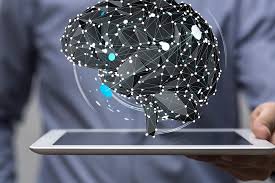items chosen one by one so you have the best option and save money on amazon (Links in articles)
Inside the Brain of a Quantum Computer: How It Thinks Differently from Any Machine Before
We live in the age of classical computers—machines that process information using bits, represented as 0s and 1s. But what if there was a new kind of machine, one that doesn’t just think in binary, but in infinite probabilities? That’s exactly what quantum computers are. They're not just faster—they’re a different form of intelligence, almost alien compared to today’s digital logic. In this article, we’ll open the lid on the mysterious “brain” of a quantum computer and explore how it’s reshaping everything from drug discovery to AI, encryption, and even our concept of reality.
5/23/20252 min leer


What Makes a Quantum Computer Unique?
At the heart of a quantum computer is the qubit (quantum bit). Unlike classical bits, which can only be 0 or 1, a qubit can be:
0
1
Both at the same time (this is called superposition)
And when multiple qubits interact, they can become entangled, meaning the state of one depends instantly on the state of another—even across vast distances.
This combination of superposition and entanglement allows quantum computers to:
✅ Process exponentially more data
✅ Explore multiple solutions at once
✅ Solve problems that classical computers can't touch
How Does a Quantum Computer “Think”?
A traditional computer thinks like this:
"Try option A. Doesn’t work? Try B. Doesn’t work? Try C..."
A quantum computer thinks like this:
"Let me try A, B, C, D... all at once, compare them instantly, and pick the most likely correct answer."
This kind of thinking is based on probability, not certainty. You don’t always get an exact answer—you get a probability distribution of correct answers, which still leads to breakthroughs in fields where traditional logic hits a wall.
Real-World Analogy
Think of a maze.
A regular computer solves it by trying one path at a time.
A quantum computer sends waves through all paths at once—and the waves cancel out the wrong ones, amplifying the best route.
This is called quantum interference, and it's one of the weirdest—and most powerful—concepts in modern computing.
What Problems Can Quantum Computers Solve?
Quantum computers aren’t replacing your laptop. They’re built for complex, massive, abstract problems, like:
🧬 Drug Discovery
Simulating molecules to find new treatments for diseases.
Predicting protein folding (essential for cancer, Alzheimer’s research).
🔐 Cybersecurity
Breaking classical encryption.
Creating quantum-proof cryptographic systems.
📈 Financial Modeling
Predicting chaotic markets.
Managing risk across thousands of variables.
🤖 Artificial Intelligence
Speeding up neural network training.
Optimizing complex ML models.
🌍 Climate Modeling
Simulating planetary systems to understand climate change.
Modeling fusion reactions for clean energy.
What Companies Are Leading the Quantum Race?
Right now, a few giants and startups are pioneering this field:
IBM Quantum – Open-access quantum hardware for researchers.
Google Quantum AI – Achieved “quantum supremacy” in 2019.
D-Wave – Commercial quantum annealing systems.
IonQ and Rigetti – Publicly traded quantum startups.
Alibaba and Baidu – Pushing quantum R&D in China.
There’s also major momentum in government-funded labs, like NASA, MIT, and European Union quantum projects.
How Close Are We to Quantum Supremacy?
Quantum computers are still in their infancy. The challenges include:
Noise – Qubits are fragile and lose coherence quickly.
Error correction – One bad qubit can corrupt a calculation.
Scaling – We need millions of qubits to outperform classical supercomputers in most tasks.
However, in 2019, Google’s Sycamore processor solved a problem in 200 seconds that would take the world’s fastest supercomputer 10,000 years.
That milestone marked quantum supremacy—the moment when a quantum computer does something no classical computer can.
Why Should You Care?
Quantum computing is no longer science fiction—it’s becoming science fact.
Even if you’re not a physicist or programmer, the impact of this technology will touch every industry, including:
Medicine
Finance
Transportation
Cybersecurity
National defense
Energy
It’s not just about faster computers. It’s about reshaping how we understand and interact with the universe.
Final Thoughts: Are Quantum Computers “Thinking”?
Not in a human sense. But the way quantum computers approach problems is so radically different, it feels like a new form of cognition.
They don’t just calculate—they explore all possibilities at once and collapse the best one into reality.
As quantum computing continues to grow, the boundaries between computation, consciousness, and the cosmos may blur in ways we’ve never imagined.